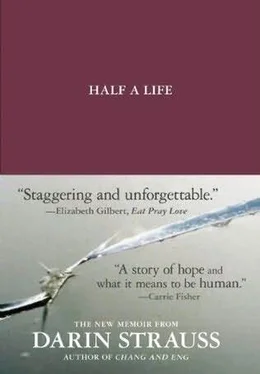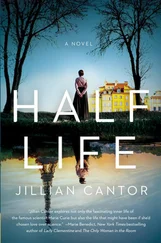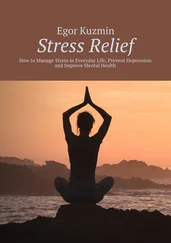Finally, my family. If you’ve read any of what comes before this, you got to see a little of their genius for kindness, for espousal. Bernie and Ellen Strauss, Susannah Meadows, Tracey Hechler — loving advocates, all of them. And finally, Beau and Shepherd, my sons. Thanks for coming.
AN ESSAY BY DARIN STRAUSS
By being an author I have in a sense made the public my confidant.
— Kierkegaard
I
When I started writing Half a Life , I thought it would be an account of one scrubby little terrible accident and that’s all. But the story ended up throwing big shadows.
In 2008, I’d read it (a very short, early draft) on This American Life . A stack of paper, sixteen on-air minutes, the soft tickle of microphone to mouth. That would, I thought, be it. Nobody would care too much. I’d been on radio before, and impressed very few. Now I got hundreds of emails, though — literally hundreds, and immediately.
“[For] the first time in 16 years I now know that I am not the only human being that knows what this feels like,” one woman wrote. Another: “My life has changed forever because I heard it.” And one of Celine’s friends — someone I hadn’t known — wrote: “I want to thank you for bringing this memory back in such a meaningful way.”
Others asked if I might send them a printout of what I’d read. One of these askers knew a Westchester boy whose car had hit and killed a seven-year-old; another’s husband never discussed his sister’s death; and another, etc. 1All these people thought a loved one might be comforted by reading an account of this disaster, of my slouch and bungle against it.
II
In writing, avoid what Saul Bellow called “helpful-to-the-sick clichés or conventional get-well encouragements.” That was my exact fear: that I’d end up for sale in the personal-help wing of your local bookseller.
And yet.
There must be a way to confess and avoid confessionalism’s dreck. The bullshit of most self-help shouldn’t mean that we can’t help ourselves by reading, or others by writing.
Maybe this is a peculiarly American idea — that even literature should be pressed into service-industry work? I turned for answers, as lit nerds do, to my bookshelf. David Foster Wallace said writing’s first obligation is to address what it is to be a human. Or, as has been said about Beckett, of all writers: Literature should give “comfort to those in need.”
Like Wallace and Beckett (only quite a lot more imperfectly), I write fiction — that organized, wrought-out thing. So I believe there’s not just beauty in fiction’s strict form, but also what Martin Amis has called a kind of ethical principle. Fiction writers arrange facts in ways that come to a kind of moral point. Such is the storyteller idea, anyway. But that wouldn’t jibe with what I set out to do here — which was? Well, merely to offer up a lumpily dutiful telling of my own life. Anything else would have felt false, disrespectful and false.
But here’s a thing I found. Maybe when you loosen a story from the pinching girdles of plot and ironic distance, from rhythm and sophistication — when you take away the casuistry and dazzle of an arranged literary framework — maybe that loss is nearly matched by some gain in simply offering things just (but exactly) as they were.
Besides, when you start really to examine the random pieces of your history, you might start to catch some accents and emphases in the mess. This seemed odd when it happened to me. It was sort of like how, when you stare for a while at one of those books of ocular gimmicks, a discrete image will begin to rise from the page of scribbles.
Those accents and emphases mark out the signposts and mile markers of your own tellable story.
III
Self-protection is a strong instinct, but it has to be overcome when you write down who you are. The drive to self-forgiveness can take you down a pretty distasteful path; there’s a lot of kitsch in a brain’s sly seduction of itself.
The Complicated Grief Disorder sadness-playback treatment I mention in the book — in fact, the whole glut of post-traumatic stress disorder cures — bundles together a lot of what’s in the air, a lot of fashionable concerns, but no morality. The PTSD cure’s dutiful enthusiasm about the stems and blooms of depression and guilt may remind cynics of Ludovico’s Technique, from A Clockwork Orange . (A sadistic criminal is made to watch violent images as he’s given an emetic.) Ludovico’s works, our dire narrator is cleansed — his ethical will is pulled up by the roots — and we’re left in a world of absolution, but no justice.
As I wound down this essay, it just so happened — a correctness that seemed as heartbreaking as it was rigid — that I caught a scene of Clockwork ’s Alex, his eyes wired open to Ludovico’s scrupulous brutalities.
One thing not addressed in most self-help is whether the person deserves to get better. Pop psych is no place for ethical quandaries — just the certainty of one’s own stainless right to feel good. All I can say about this is: I’ve tried very hard to avoid any sort of reflexive justification here — to avoid putting my thumb in the scale. That’s why I’ve offered up as many unflattering disclosures as I could remember. (Going to the movies the day of the accident, for Christ’s sake?) I tried my best to make sure what you hold in your hands isn’t just some brief for the defense. Now it’s up to you, I guess, to see if I succeeded.
IV
A friend of mine recently had to pull off to the side of his life. His mother fell unexpectedly, deathly ill. He moved to his family home to care for her. He knew this would be very hard. The difficulty, the cost to his mind and heart, topped even what he had braced himself for.
His mother was dying in front of him — in all the physical messiness and gagged intimacies of a drawn-out death. Helping the mother die was exhausting, sad, constant work. And the truth was, she was going to die anyway. My friend learned that it was also true that he could handle this bleak work. And that he owed it to her to handle it. To her, and to himself.
I asked this friend if I could mention him here. His response: “It sounds lame to say that hearing your story changed my life but it kind of did. Just knowing someone else has gone through something and made it out. And if you put my story in your book, then maybe some other reader will be affected by that . And so my mother’s story will be in some small way knitted with that person’s story, as well as your story, and my story. And so on.”
Morally passionate, passionately moral writing (Wallace again) ideally helps readers feel less alone. That may read as puffed up and kitschy. But it’s what I was trying to do here: to be faithful to the memory of Celine, and to all those generous, sharing emails. And so what had started as a personal account of an atypical recovery — basically, of my own fuck-ups and slow learning — has opened for a lot of people into a universal story of how to live with steep grief and unwarranted guilt. And with the running back and forth between shock and anguish — which is shock’s finger-pointing offspring. People find their stories easier to live through when they hear other people’s stories.
This is how my friend goes about the care of his dying mother: he rises each morning and chops the wood, and carries the water. And he’s going to be okay.
1. Please don’t take me as ungracious just because discussing these emails affects my stomach like twelve hours on a trembling airplane. I’d been warned by other novelists turned memoirists, Oh, you’ll be overwhelmed, non-fiction’s quite different, readers won’t respect boundaries, etc. All this turned out to be true. But true in a way that struck me as profound and thrilling, even beautiful. I started up email relationships with a number of readers. But because these relationships are based only on awkward personal revelations, they’re delicate. So delicate I’m afraid that, like shadows, they’ll die if I shine much light on them here.
Читать дальше









